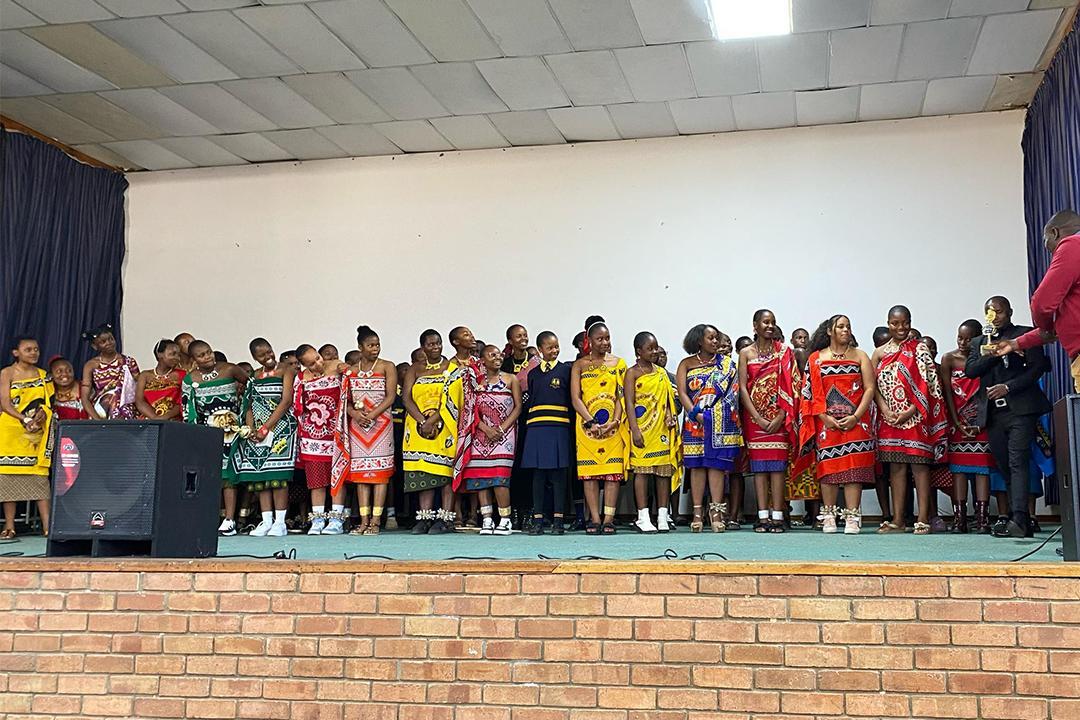Africa-Press – Eswatini. Hermann Gmeiner High School (SOS) commemorated the International Day of the African Child at its school hall, under the theme “Planning and Budgeting for Children’s Rights.”
The Day of the African Child was celebrated with government officials,Welcome Mhlanga , the principal of SOS Hermann Gmeiner High School,Mlondi Dlamini, the chairperson of the school committee,educators, learners, parents , and representatives from the SOS Children’s Village to honour children’s rights.
The event strongly reflected the vision of Hermann Gmeiner the founder of SOS children’s village in 1949. Although he has passed on, his vision and dreams still live up to today, that every child should grow up in a safe, loving, and supportive environment. Staying true to this vision, the Headteacher of SOS Hermann Gmeiner High School and the school committee reaffirmed their commitment to the school’s mission of delivering quality education, promoting inclusion, and empowering learners to take charge of their futures. They remain dedicated to creating a nurturing space where children grow with love, respect, and security. This vision echoes the spirit of the Day of the African Child, which remembers the brave children of 1976 who stood up for their right to education.
Stan Maphosa, a planner and economist in the Ministry of Education, stressed that children’s rights must be at the core of national policies and financial planning. “This theme resonates with my work as a planner. It is especially relevant as Eswatini undergoes a transformation of its education and development systems under the Nkwe Framework,” he said.
Maphosa said planning for children must go beyond financial allocations to focus on equity, inclusion, and impact. He urged budget committees to always consider the child as the ultimate beneficiary. “When I receive requests from institutions, I step back and ask: who is the end user? For me, it’s the child,” he added.
Eswatini currently allocates over 5% of its gross domestic product and more than 15% of total national expenditure to education ,figures that surpass international benchmarks. These funds support state-funded primary education, the Orphaned and Vulnerable Children (OVC) Fund, the Inclusive Education Policy, and reintegration programs for teenage mothers.
While progress is evident, Maphosa warned against complacency. “It’s not enough to spend, we must spend wisely and measure the outcomes,” he said.He urged learners to sharpen their academic and cognitive skills, and to become creative thinkers in a fast-changing world. “You are not the leaders of tomorrow. You are leaders today. We are planning and budgeting with you in mind,” he said.
Maphosa concluded with a call to action: “A plan without a budget is only a dream. Let us all work together to ensure every child in Eswatini survives, learns, and thrives.”
For More News And Analysis About Eswatini Follow Africa-Press







